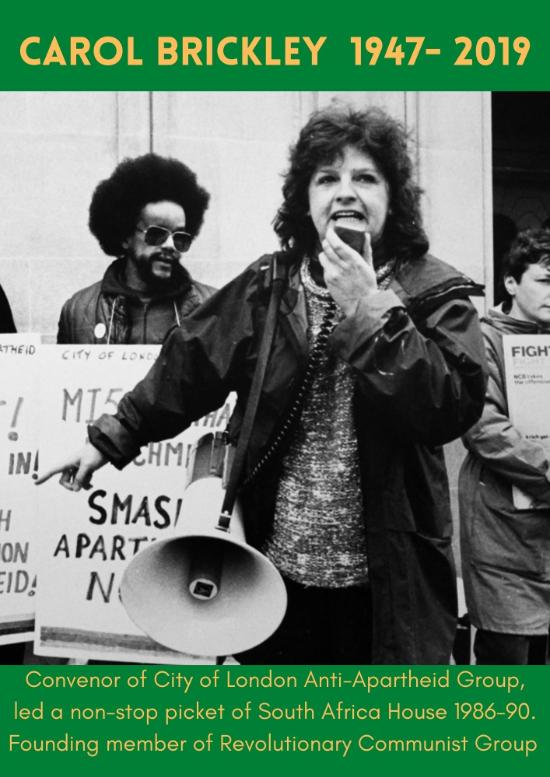Josina Muthemba Machel 1945-1971
Josina Muthemba Machel was a revolutionary fighter with the Front for the Liberation of Mozambique (FRELIMO), founded in 1962, which fought for Mozambique’s independence from Portuguese rule. She was a key figure in the Mozambican struggle for independence believing ‘We must be vigilant until imperialism is destroyed’.
She became involved in student activism at the age of 13, joining the Núcleo dos Estudantes Africanos Secundários de Moçambique (NESAM) that Eduardo Mondlane (later the first President of FRELIMO) had helped establish in 1949. NESAM was crucial in disseminating nationalist sentiments and allowing participants to study and discuss Mozambique in its own right and not just as a colony of Portugal.
In March 1964, aged 18, Josina fled the country with several other students with the intention of joining FRELIMO, which was based in Tanzania. They were arrested and were jailed without sentence or trial. Five months later, on her 19th birthday, Josina was released from jail as a result of an international campaign carried out by FRELIMO.
Eventually Josina reached Tanzania where she was among the first 25 young women to be given military and political training in the Destacamento Feminino military detachment for FRELIMO women. The work of the women’s branch was to combine defensive roles guarding supplies and positions in the northern liberated territory with community organising among the people of the liberated zones. Josina and her comrades organised health centres, schools, childcare centres, supporting families whose homes had been destroyed. She was made head of the Women’s section in FRELIMO’s Department of International Relations at the age of 24. She travelled outside the country to international gatherings relating to women’s rights and she spoke on the experiences and realities of Mozambican women and people from her own first-hand knowledge.
She consistently advocated for women’s equal participation in political, economic and social life. In 1969, she married Samora Machel, who would go on to become the first president of an independent Mozambique in 1975. This year she also had a son, Samito and travelled on foot through the northern liberated zones to support the implementation of social programmes. She became ill with suspected liver cancer, despite this she continued her work. On a mission to Tanzania in April 1971, as she crossed the border she handed her pistol to a companion saying ‘Comrades, I can continue no longer, give this to the military commander of the province so that it may contribute to the salvation of the Mozambican people’.
She died in Dar es Salaam, Tanzania on 7 April, 1971 aged of 25. Though she died without seeing her dream of an independent socialist Mozambique, she contributed to the liberation of key northern provinces which were central to the final victory of independence in 1975. 7 April is now National Women’s Day in Mozambique. Samora Machel wrote a poem on her death, including the words:
‘When a comrade so completely assumes the new values she wins our heart, becomes our banner…. How can we mourn a comrade but by holding the fallen gun and continuing the combat? The flowers which fall from the tree are to prepare the land for new and more beautiful flowers to bloom in the next season. Your life continues in those who continue the Revolution.’
(See https://www.sahistory.org.za/archive/uncovering-josina-machel-obscurity-african-women-hidden-his-story-ama-biney-3-april-2014 and https://face2faceafrica.com/article/the-short-yet-inspiring-life-of-josina-machel-the-mozambican-heroine-who-died-fighting-for-her-country-at-25





